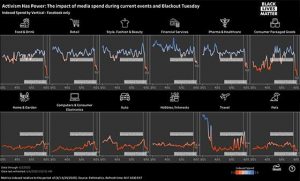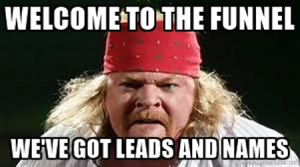The use of eCommerce websites has never been more in demand than now. People these days are primarily introverts; we don’t usually like going outside if we can avoid it. As people grow more accustomed to their lives spent indoors rather than outdoors, reaching a customer base can be difficult when it comes to real life.
There’s only one obvious solution, take your business online! It’s easier said than done, but the results are incredibly fruitful and can help your business expand exponentially. You’ll have to use specific techniques to grow your business in the eCommerce world, which we all know as SEO.
SEO stands for search engine optimization; if you’re new to the eCommerce market, you may not know much about how best to convey your product out on the market. Luckily, we got you covered; let’s run through all the ways you can make your eCommerce site spread far and wide and reach new ears.
Here are some tips I can offer you:
1. Optimize Load Time
When creating a webpage for your product, you need to make it as engaging as possible to keep your potential clients interested. Aside from a good UI, the thing that keeps your traffic flowing is loading time. In today’s age, we’re all a little impatient; we want things to load fast, we don’t want to be left waiting for a page to load for more than a few seconds.
Most eCommerce websites lose customers because of their intense loading times. Keeping a customer waiting can cause frustration and drive them away, so a shorter loading time is best. There are some ways you can improve your page loading time:
- You should use a powerful webhosting to host your e-store. Some hosting services providers like Cloudways offer optimized solutions for eCommerce websites and can significantly improve your website’s load time.
- Use the latest types of image formats like WebP and compress your images.
- Only use reputable themes, plugins, tools on your e-store.
- Reduce the cookie size on your webpage. The more data stored on cookies, the more time it’ll take to load the page.
- Compress and minify your website files.
- Use a CDN network.
2. Switch to HTTPS
According to the studies, more than 49% of websites have inadequate security. If you’re one of those then I strongly recommend you to switch to HTTPS instead of HTTP. These days, HTTPS is a Google ranking factor to rank on Google and for eCommerce Websites, having an SSL certificate becomes more important.
HTTPS makes the connection secure between the servers and browsers. You can easily make your website HTTPS by installing an SSL Certificate. You should ask your web hosting provider company if they offer a free SSL certificate. But for better security of your store, you can buy an SSL certificate for your e-store.
3. Improve E-A-T
To achieve SEO success, you need to improve your website E-A-T. E-A-T stands for Expertise, Authoritativeness, and Trustworthiness. Google uses various algorithms to understand (evaluate) the Expertise, Trustworthiness, and Authority of a website before ranking on Google.
And it becomes more important for eCommerce businesses to work on improving the E-A-T of their websites. For that, you should make efforts to get mentions/links from top-tier media publications, get links from relevant high-authority sites. Provides details about your company, offices, founders, and real customer experiences & testimonials.
4. Website Architecture
Your website is driven solely by its external appearance. Your site should be easy to use, simple, and straightforward. Creating an eye-catching, user-friendly website can do wonders for your website’s popularity.
To keep your website relevant, pay extra attention to the user experience. The easier something is to use, the less time it’ll take for your customers to find their way around the site. You should add important pages in the navigation menu so users can easily find and visit those pages. A well-planned website architecture helps you to improve the customer experience for your visitors as well as helps you with SEO.
5. Internal Linking
Internal linking means adding (linking) your website pages to each other. In simple words, these are backlinks from your own website.
Internal linking helps you engage your users and improve your bounce rate as well as helps you with SEO. You should interlink your product pages from your blog pages and important pages from your Header, footer, or sidebar to improve their Google rankings. A well-planning interlinking campaign can instantly boost your website rankings.
6. Optimize Product Pages
You can increase your sales and revenue if you succeed to rank your product pages on Google for the right keywords. Keyword research is the first step of product page optimization. That’s why you should target the right keywords for your product pages. Focus on keyword relevancy instead of search volume. You can get insights from your PPC data to choose the right keywords for your product pages.
Once you find the right keywords then optimize your product page descriptions. Meta descriptions, and title tags. Use the product schema on your product pages so Google can easily find details about your products.
7. Mentions and Backlinks
Backlinks are still one of the most important ranking factors to rank on Google. But now Google is smarter than before and can easily differentiate between good and bad links.
That’s why you should focus on getting high-quality links from relevant sites that will be difficult for your competitors to acquire. You need to use genuine methods like broken link-building, outreach, and Digital PR to get links for your website.
8. Use Schema Markup
Utilizing schema markup is one of the most efficient ways to improve your SEO. Schema markup uses semantic language to help search engines understand what your website is all about.
It is code used to make search engines understand what your website offers to the client base. Schema markup can help the search engines better categorize your website according to keywords. Using the language of the search engines can help them help you more efficiently.
Final Words
Optimizing your eCommerce store for Google is very important to get targeted traffic to your e-store. And all the above-mentioned tips and strategies will help you rank your eCommerce store higher on Google. Use genuine techniques, Improve your website EAT and focus on providing a better User-experience to your users. You’ll definitely get higher rankings for your eCommerce website.
Digital & Social Articles on Business 2 Community(29)





